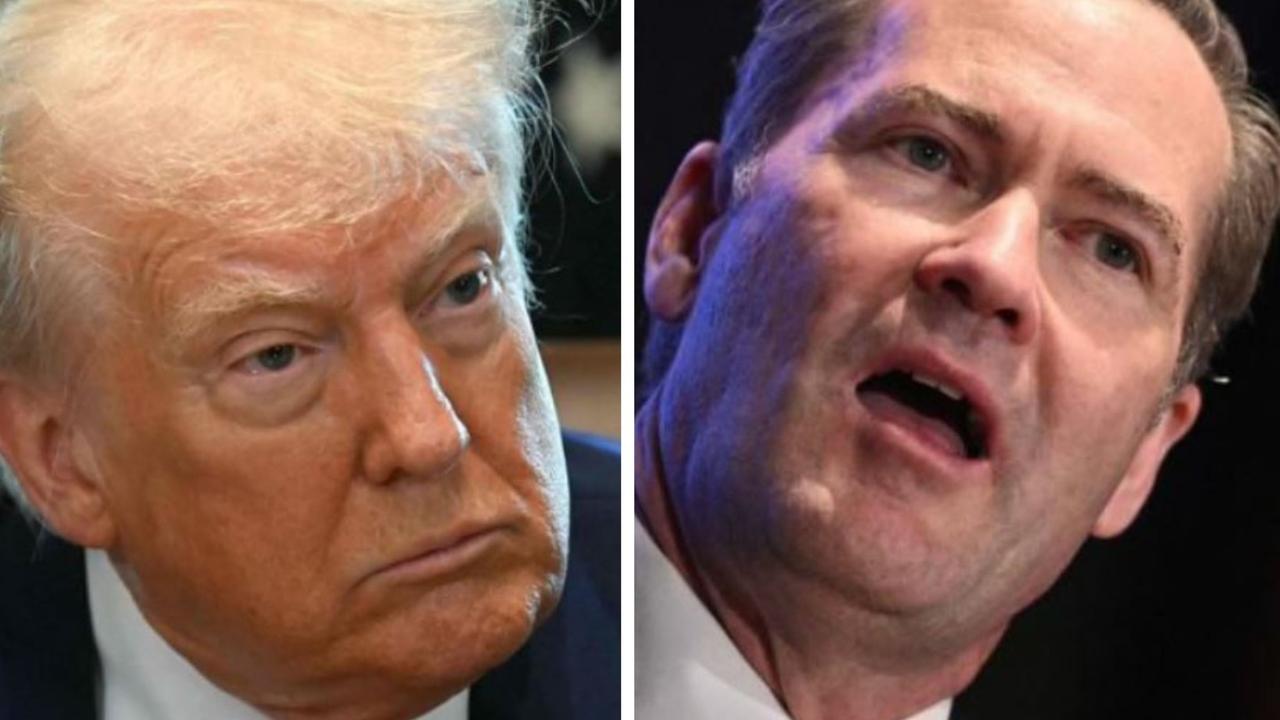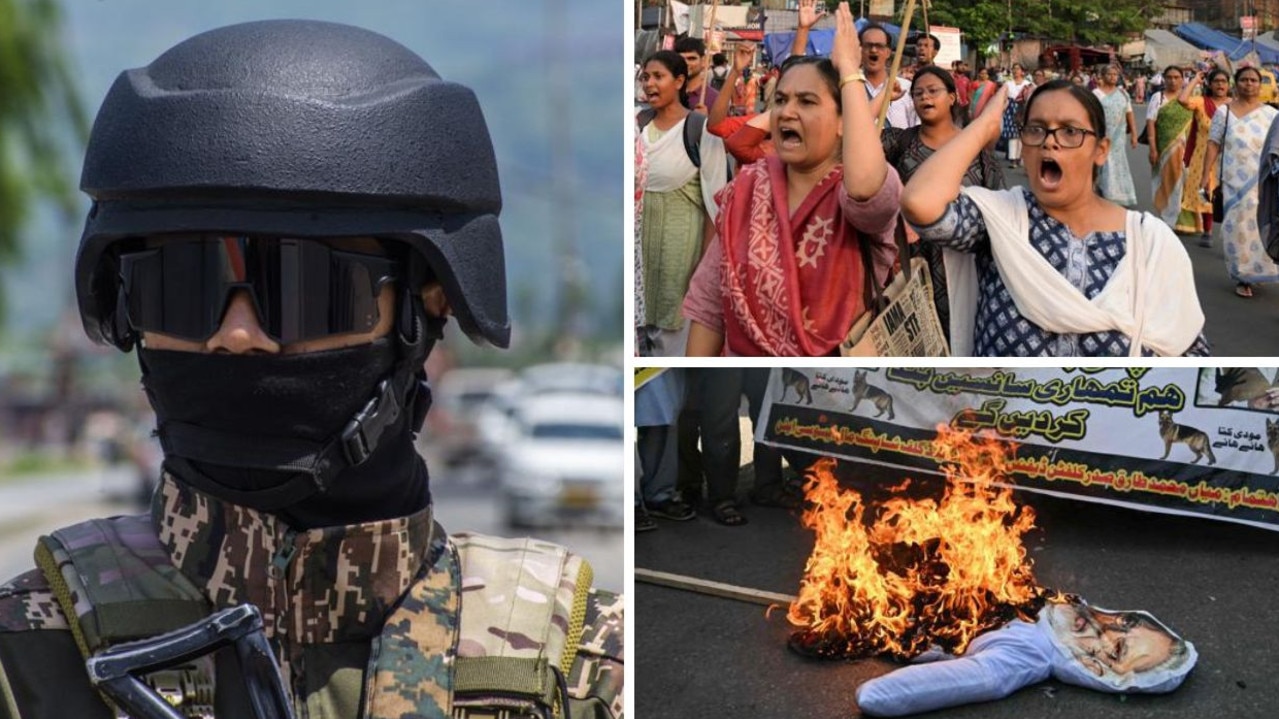UK election: Prime Minister Rishi Sunak faces bloodbath
British Prime Minister Rishi Sunak is set for annihilation in the UK election as votes start to pour in. Here’s your five-minute guide.
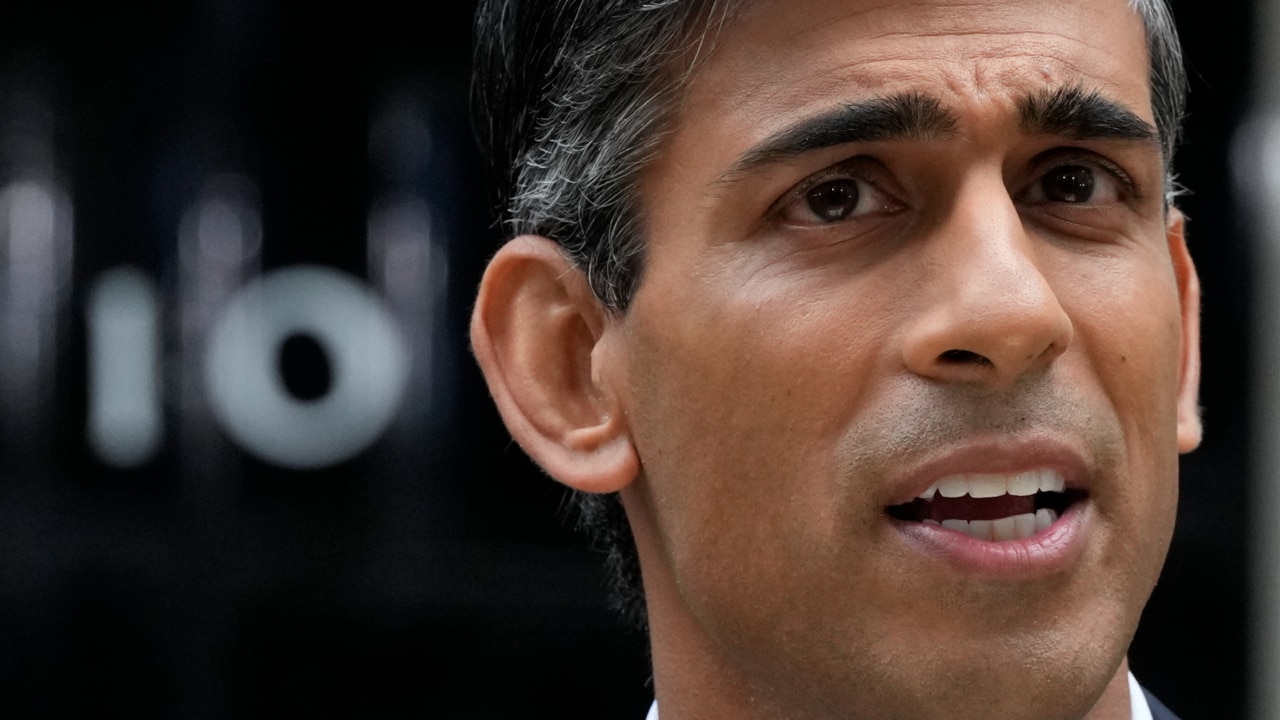
World
Don't miss out on the headlines from World. Followed categories will be added to My News.
British Prime Minister Rishi Sunak is set to face annihilation in the UK election as voters hit the polling booths.
A new poll predicts a Labour landslide with the Conservatives nearly wiped out, though some battlegrounds remain too close to call.
Polls will open at 7am local time on Thursday (4pm AEST) for an election that could potentially reshape the country’s politics in a more lasting way.
According to the final YouGov poll of the campaign, Labour is on course to win a majority of the 212 seats, which would give leader Sir Keir Starmer the biggest majority of any party since 1832.
If the poll is accurate, 16 cabinet ministers from the Tories would also lose their seats.
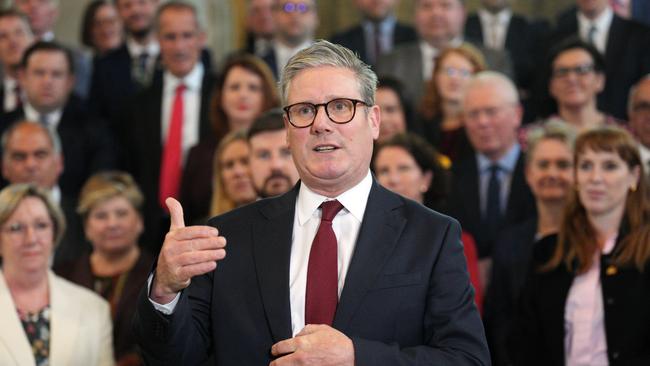
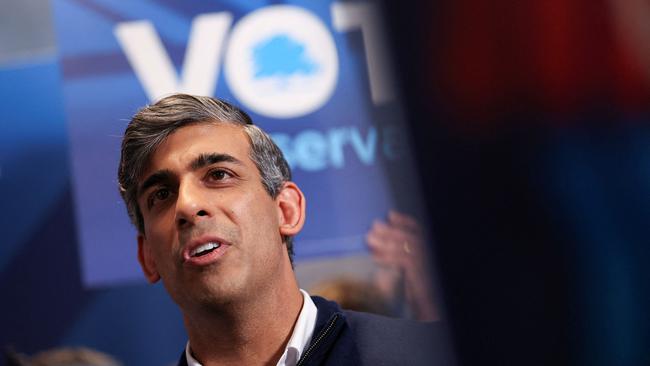
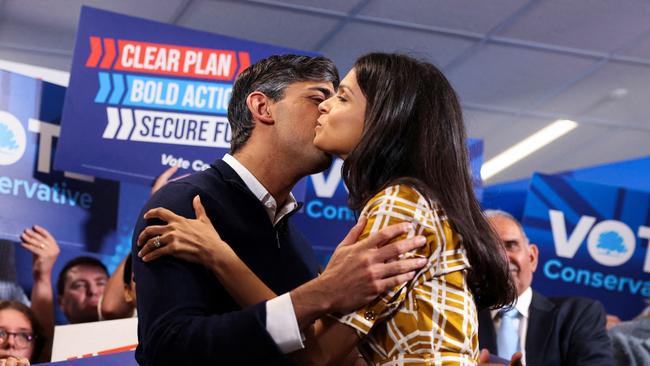
Meanwhile, Nigel Farage’s insurgent right-wing Reform UK is predicted to win three seats.
The YouGov poll also lists 89 seats as toss-ups where there is all to play for between rival parties.
A sweeping Labour landslide would mark a transformative moment in British politics, ousting the Tories after 14 years and five prime ministers. This period has been marred by Brexit and contentious immigration debates, deeply dividing the nation.
YouGov, a long-standing pollster, correctly predicted a hung parliament in the 2017 general election when other polling suggested a strong majority for the Tories.
Get across the basics with this five minute guide to the British election.
Who is in power now in the UK?
The Conservatives have been in power for 14 years, a spell in office second only to the marathon stretch in which the party ruled between 1979 and 1997, with Margaret Thatcher and John Major as prime ministers.
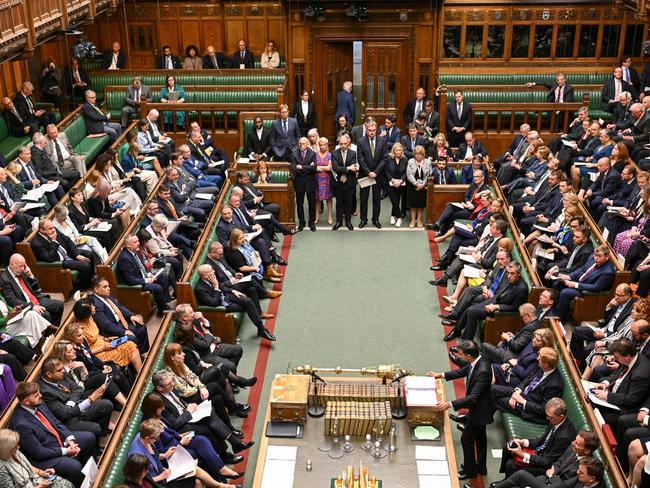
But whereas the Thatcher/Major years were known for their stability, the Conservatives have been on a wild ride, with a revolving door of leaders: David Cameron (2010-16), Theresa May (2016-19), Boris Johnson (2019-22), Liz Truss (a mere 50 days in 2022) and Rishi Sunak (since October 2022).
Of the 650 seats in the House of Commons, the Conservatives won 365 at the 2019 general election.
What are the three main political parties in the UK?
Polls point to a historical drubbing for the Conservatives, the UK’s most historically dominant party. (Over the past 40 years, there have only been 13 when the UK did not have a Conservative Prime Minister.)
There are predictions it will be a landslide victory for Labour, under the leadership of Sir Keir, with one poll suggesting they will end up with 465 seats.
The election is also expected to see a resurgence in the UK’s “third” political party, the Liberal Democrats, which was reduced to just 11 elected MPs at the 2019 general election (although they have since picked up four more, thanks to by-elections).
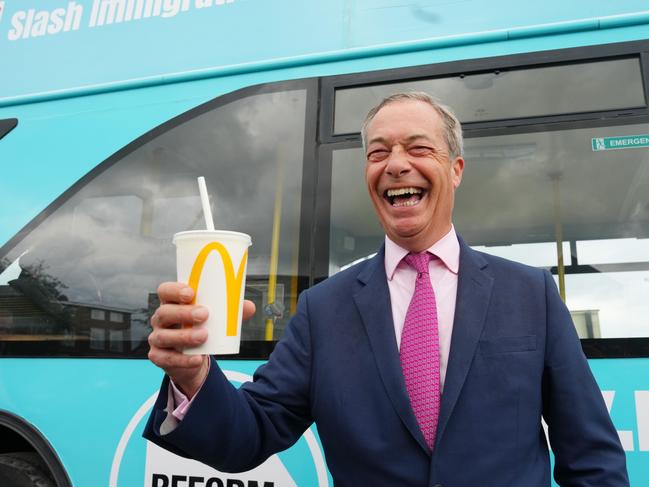
The latest YouGov poll predicted the Liberal Democrats would finish with 67 seats in the new parliament, but some commentators have suggested they could actually edge out the Conservatives to become the Opposition.
A fourth political party, Reform UK, led by Nigel Farage, is also set to have an impact this election. Formerly known as the Brexit Party, the staunchly anti-immigration group had just one MP when the election was called (a Conservative MP who defected) but polls put its support now at around 16 per cent – enough to win it a swag of seats.
Who are the tories in British parliament and why are they called tories?
“Tory” and “The Tories” are unofficial terms for the British Conservative Party and its MPs, with the origin of the name going back centuries. (Various Irish words have been suggested as the root of the word; it doesn’t come from the word “conservatory”, as some might think.)
While the term is usually used to specifically denote the Conservatives, it is also used in a broader sense to denote anyone with staunchly conservative or traditionally right-wing views.
Australia’s current Prime minister Anthony Albanese famously used the term in 2013 to describe his antipathy towards the Coalition: “I like fighting Tories. That’s what I do,” he said at the time.
How will the election work?
Voting takes place across the UK on Thursday July 4, with booths open from 7am until 10pm. General elections have been held on a Thursday for almost a century, but this is a tradition rather than a legal requirement. Voting is not compulsory, as it is in Australia; about two in three eligible people voted in 2019.
For the first time ever, Britons will be required to show photo ID at the voting booth this time.

Counting begins at 10pm, the same time as the results of exit polls are allowed to be published and broadcast. Some results are expected before midnight but in closer seats results will not be clear for hours.
The UK uses a first-past-the-post system of voting, rather than the proportional representation system used in Australia. Voters are asked to put an “X” against the candidate of their choice (ticks are also accepted) – unlike Australia, where voters are required to put numbers against all candidates according to personal preference.
The candidate with the most votes is declared the winner. Should the Labour Party win a clear majority of seats in the House of Commons, as expected (326 seats), Sir Keir Starmer will meet with King Charles, who will invite him to form a government in his name.
Will the UK parliament be dissolved?
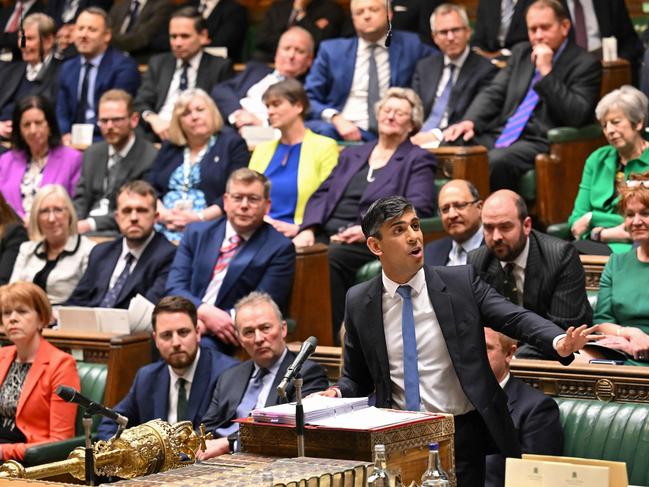
The power to dissolve the British parliament comes from the monarch, acting upon advice from either the prime minister or cabinet. In the case of this election, the election was notified on May 22, and parliament was prorogued on May 24; the two day period between was known as the “wash up”, during which unfinished legislative business was attended to. British parliament was formally dissolved on May 30, with all seats in the House of Commons declared vacant.
What happens to the government in the run-up to the election?
As in Australia, the public service (known as the civil service in the UK) enters a caretaker mode once the election date is set. In this time, government communications are minimised to avoid the appearance of partiality.
Government ministers retain their posts throughout the election campaign but by convention do not announce new policies or commit the government to new plans.
What do polls suggest are the main issues at stake?
YouGov polling shows the rising cost of living is the number one issue for Britons leading into this election, nominated by 45 per cent of survey respondents. Inflation spiked at 11 per cent in late 2022, and while it has come down considerably since then, many people are still feeling the pinch. Food banks distributed 3.1 million parcels in the past 12 months – a record number.
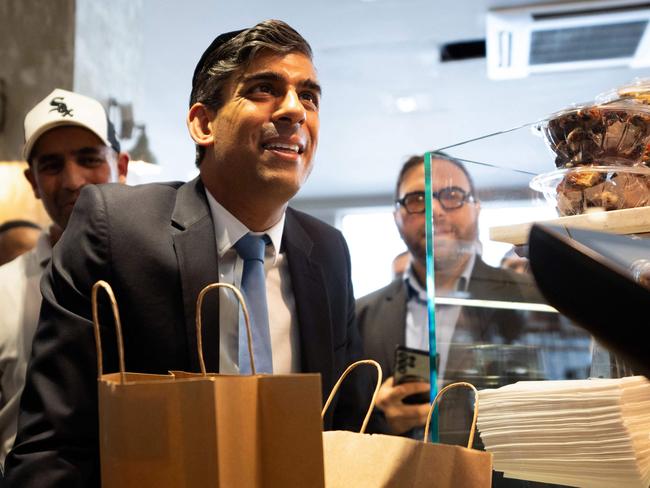
Of the people who nominated cost of living as a key issue in the YouGov poll, just over one in four (26 per cent) aid it was the number one issue that would decide their vote on July 4.
Health and the economy were listed as the next two pressing issues for voters, although interestingly, the fourth-biggest topic, immigration, was more of a vote-turner, name-checked as the primary issue for 18 per cent of voters.
The environment and climate change was regarded as the fifth most important issue in the poll.
Trust in politicians, particularly the Conservatives, is also regarded as a key factor in this election; many voters still have a bitter taste in their mouths about the flouting of Covid restrictions by party insiders during Boris Johnson’s time as prime minister. An Ipsos poll in May found an astonishing 83 per cent of voters were dissatisfied with the government.
The campaign seems to have solidified resentment of the Conservatives, with many taking a dim view of Rishi Sunak’s decision to make an early exit from D-Day anniversary events in France to do a TV interview. A recent insider betting scandal engulfing the party has also not done the party any favours.
Who is predicted to win in this upcoming election?
Labour has enjoyed a commanding lead in the opinion polls for some time, but YouGov’s tracking poll of voting intention shows a narrowing as election day approaches.
On June 25, the poll showed 36 per cent of respondents intended to vote for Labour, down from 46 per cent on May 30.
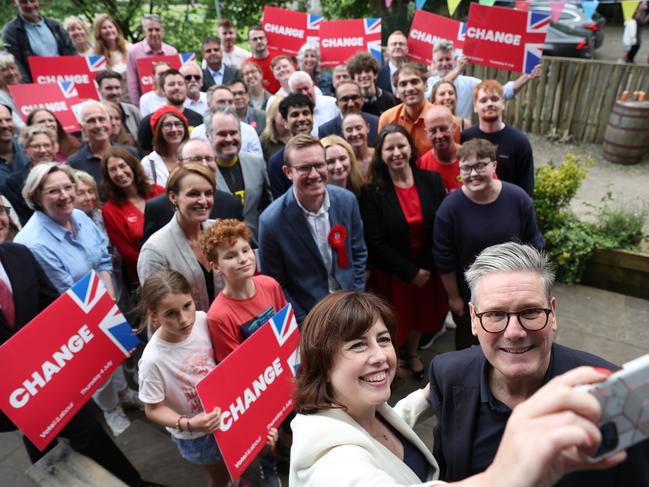
Support for the Conservatives was at a dire 18 per cent, putting them neck and neck with Reform UK.
A poll commissioned by The Economist predicted Labour would win 465 seats in the new parliament, which would be the biggest majority for any UK government since the Second World War. An Ipsos poll was only slightly lower, forecasting 453 seats for Labour, and YouGov predicted 425 seats.
What do political leaders think of Mr Sunak’s election announcement?
The election could have been held as late as December 17.
With dismal polling numbers, and an expected upturn in some economic indicators, Rishi Sunak’s decision to call the election early had many commentators scratching their heads – particularly coming just weeks after the Conservatives performed poorly at local council elections.
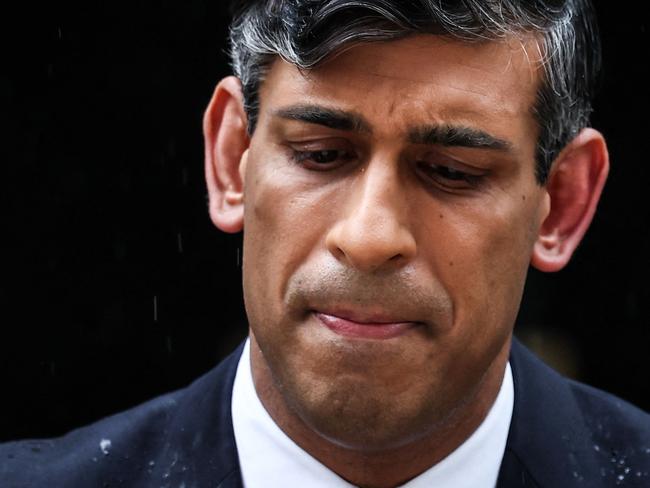
The prime minister’s announcement – made in pouring rain in Downing Street while some wag broadcast Tony Blair’s 1997 election anthem Things Can Only Get Better from a nearby street – prompted many longstanding Conservative MPs to announce they would not contest the election.
In all, 78 sitting MPs chose to bow out: a record number.
Some commentators suggested Mr Sunak might have been motivated by the prospect of a challenge to his leadership from within Conservative ranks.
Others said a more likely proposition was that there were indications support for the government could actually plunge further later in 2024, and so the decision to go for a summer election was made.
Read related topics:Explainers



